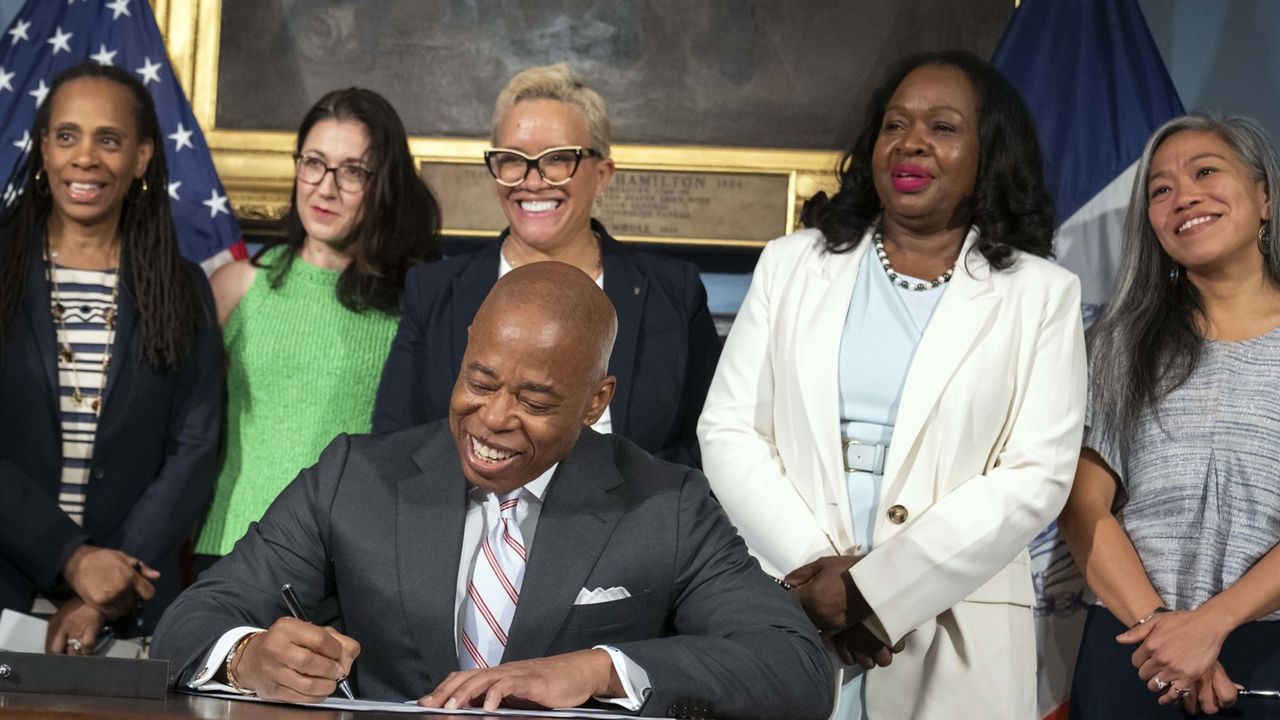Mayor Eric Adams on Friday signed an executive order ending the city’s so-called “90-day rule,” which required New Yorkers to spend three months in a shelter before becoming eligible for rental assistance vouchers.
The move to cut red tape around housing assistance comes as asylum seekers continue to arrive in the five boroughs, pushing the city’s shelter system to its limits, Adams said at a news conference.
“Removing this rule will help even more people into permanent housing as quickly as possible, and will do so without overburdening taxpayers,” he said. “The rule change will help get both families and single adults in shelter the help they need when they need it, with more precision and less red tape and bureaucracy."
Last month, the City Council passed a veto-proof legislative package meant to overhaul the rental assistance voucher program. The legislation included the elimination of the 90-day rule.
Adams, however, has taken issue with parts of the package, including a bill that would allow New Yorkers in danger of eviction to access city housing vouchers.
“We have 20,000 vouchers out there currently, and to add that pool to those who fall back in their rent for a short period of time, you’re just going to make it difficult for those who are in homeless shelters now, difficult for them to get out,” he said Friday.
Fielding questions from reporters, the mayor said he found parts of the City Council’s slate of bills “problematic,” including their associated price tag.
A spokesperson for Adams previously said the package would cost the city more than $17 billion over a five-year period — a figure Deputy City Council Speaker Diana Ayala called “seriously inflated.”
Department of Social Services Commissioner Molly Wasow Park on Friday said the city’s Office of Management and Budget estimated eliminating the 90-day rule alone would cost the city around $123 million a year.
“Parts of that package, we think it’s going to hurt taxpayers, and we’re not trying to raise tax dollars," Adams said.
Following Adams’ announcement, City Council members and housing advocates reiterated their calls for the mayor to sign the package of bills into law.
“The efforts to transition people from homeless shelters to permanent housing have been inadequate, straining the city's shelter capacity under additional pressures,” City Council Speaker Adrienne Adams said in a statement. “While we welcome the administration finally seeming to drop its opposition to end the 90-day rule, the Council’s legislation importantly codifies the change and provides a more comprehensive approach to remove other obstacles to housing vouchers that can help protect New Yorkers.”
Former City Council Speaker Christine Quinn, who currently serves as the president and CEO of WIN, a shelter and supportive services provider, urged Adams to do more on the issue as well.
“Housing vouchers are one of the best tools we have to support homeless families, but we all know they can be more effective,” Quinn said in statement. “While I applaud Mayor Adams for repealing the outdated, illogical 90-day rule, more must be done to break the cycle of homelessness — and I stand with the Council in urging him to sign the entire package of housing voucher reforms.”
Asked if he would try to veto the legislation, Adams on Friday said he was still mulling his options. The mayor could veto the bill and send it back to the Council, which could override his veto with a two-thirds vote.
Adams would have to round up enough votes to sustain his veto — an unlikely outcome, as the City Council passed the package with a vote of 41 in favor and seven against on May 25.
If the mayor does not sign or veto the legislation within 30 days — or the Council overrides his veto — it will become law.



